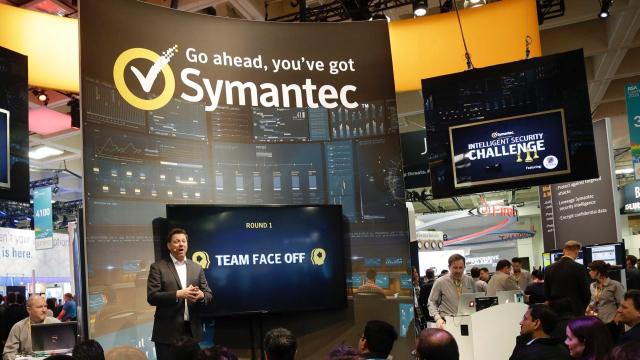Today security company Symantec, best known for its consumer anti-virus programs, spent $US2.3 billion ($3.1 billion) on a company called LifeLock. LifeLock is a so-called “identity protection” provider that is supposed to help alert its subscribers to odd activity on their accounts.
Image: AP
The idea is that if your credit card number is stolen or your identity is used by someone else, LifeLock will alert you of the bogus activity and keep it from harming your credit score or life. That sounds awesome, but the company has been marred in controversy and lawsuits over the years.
Its former CEO, Todd Davis, used to put his social security number on billboards on busses and even his car, daring people to steal his identity. No worries, he said, because LifeLock was just that good. Except it wasn’t. Back in 2010, it was revealed that Davis’s identity was stolen more than 13 times.
And that’s before we get to all the lawsuits. As Computerworld points out, it was just a year ago that the US Federal Trade Commission (FTC) fined LifeLock $US100 million ($135.5 million) over false-advertisement claims. The $US100 million ($135.5 million) figure was actually a contempt charge — and the largest enforcement action the FTC has ever claimed — because LifeLock hadn’t properly complied with a $US12 million ($16.2 million) settlement with the FTC and three-dozen states attorney generals from 2010.
Lawsuits go even further back, with consumers and the credit reporting agency Experian both suing the company for the first time in 2008, over, you guessed it, fraud and false advertising practices. Then, in 2014, LifeLock had an embarrassing incident where its “wallet” app for iOS and Android wasn’t actually as secure as it claimed to be. As as result, the company pulled the app from Apple and Google’s app stores and nuked customer data, just to be safe.
Symantec, for its part, thinks this is a good use of $US2.3 billion ($3.1 billion). In a statement to Computerworld, the company said:
We are thoroughly satisfied that any previous issues are in the past,” said a company spokeswoman in an email reply to questions. “Consumers vote with their wallets and there are 4.4 million happy and committed LifeLock customers — and growing.
And this is before we even address the fact that by all accounts, LifeLock just isn’t a very good service. It costs a minimum of $US10 ($14) a month, and many of the things it does, you can do yourself for free.
Having anti-virus for your computer makes a lot of sense; malware and viruses are real. But paying for an real-life equivalent of anti-virus software (that is, an identity protection service) makes less sense. Especially when the company doing the “protecting” has such a shady history.
